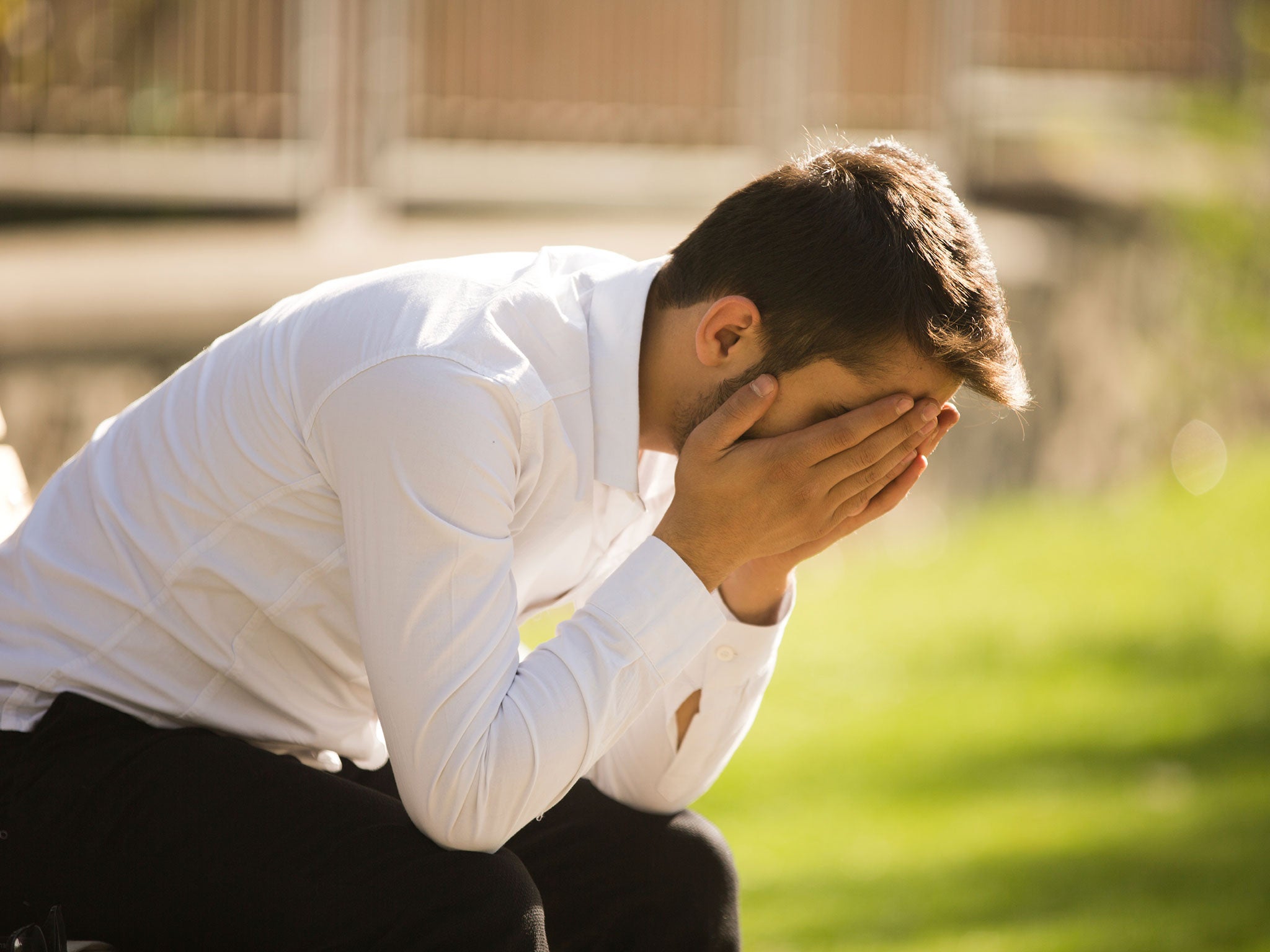Self-harm rates rising in men as economic downturn threatens their 'breadwinner' status
Men are suffering as they 'fail' to performed traditional gender roles following the economic crash, research has suggested

Your support helps us to tell the story
From reproductive rights to climate change to Big Tech, The Independent is on the ground when the story is developing. Whether it's investigating the financials of Elon Musk's pro-Trump PAC or producing our latest documentary, 'The A Word', which shines a light on the American women fighting for reproductive rights, we know how important it is to parse out the facts from the messaging.
At such a critical moment in US history, we need reporters on the ground. Your donation allows us to keep sending journalists to speak to both sides of the story.
The Independent is trusted by Americans across the entire political spectrum. And unlike many other quality news outlets, we choose not to lock Americans out of our reporting and analysis with paywalls. We believe quality journalism should be available to everyone, paid for by those who can afford it.
Your support makes all the difference.Self-harm rates are rising in men as they struggle to fulfil traditional 'breadwinner' roles following the economic downturn, research has suggested.
Researchers from the University of Oxford Centre for Suicide Research found that self-harm rates among men are rising and have been rising steadily since 2008. By comparison, rates in women are declining.
It has been suggested that as men are socialised to perform a traditional ‘breadwinner’ role in the family, they may invest a greater sense of self-worth in their ability to succeed financially. Therefore, if they become unemployed or experience a wage drop, they are more likely to experience intense distress.
Study author Professor Keith Hawton told The Independent: “The problems that occur following economic downturn and may therefore increase the risk of suicidal behaviour are multiple. They include fears of job loss, actual job loss, financial problems, impact on families and relationships, and, probably, increased use of alcohol.
“The apparently greater impact on men, at least in terms of suicidal behaviour, may be related to the primary importance of work for their self-esteem and their sense of being the bread-winner responsible for keeping families and (themselves) afloat. Obviously there will be significant impacts on women, including related to their working roles. However, the key place of work to the self-esteem of many men may mean that loss of work, or threatened loss of work, has a greater impact.”
Stephen Buckley, Head of Information for mental health charity Mind, told The Independent: “Mind research has found that men define themselves much more by their profession than women, so redundancy can be more damaging to their mental health and one in seven men will develop depression within six months of losing their job.
“Issues such as self-stigmatisation, or the idea that ‘real men don’t cry’, can prevent men from accessing the help they need. Men often try and find ways of dealing with their problems independently rather than reaching out and sharing their problems.”
Join our commenting forum
Join thought-provoking conversations, follow other Independent readers and see their replies
Comments